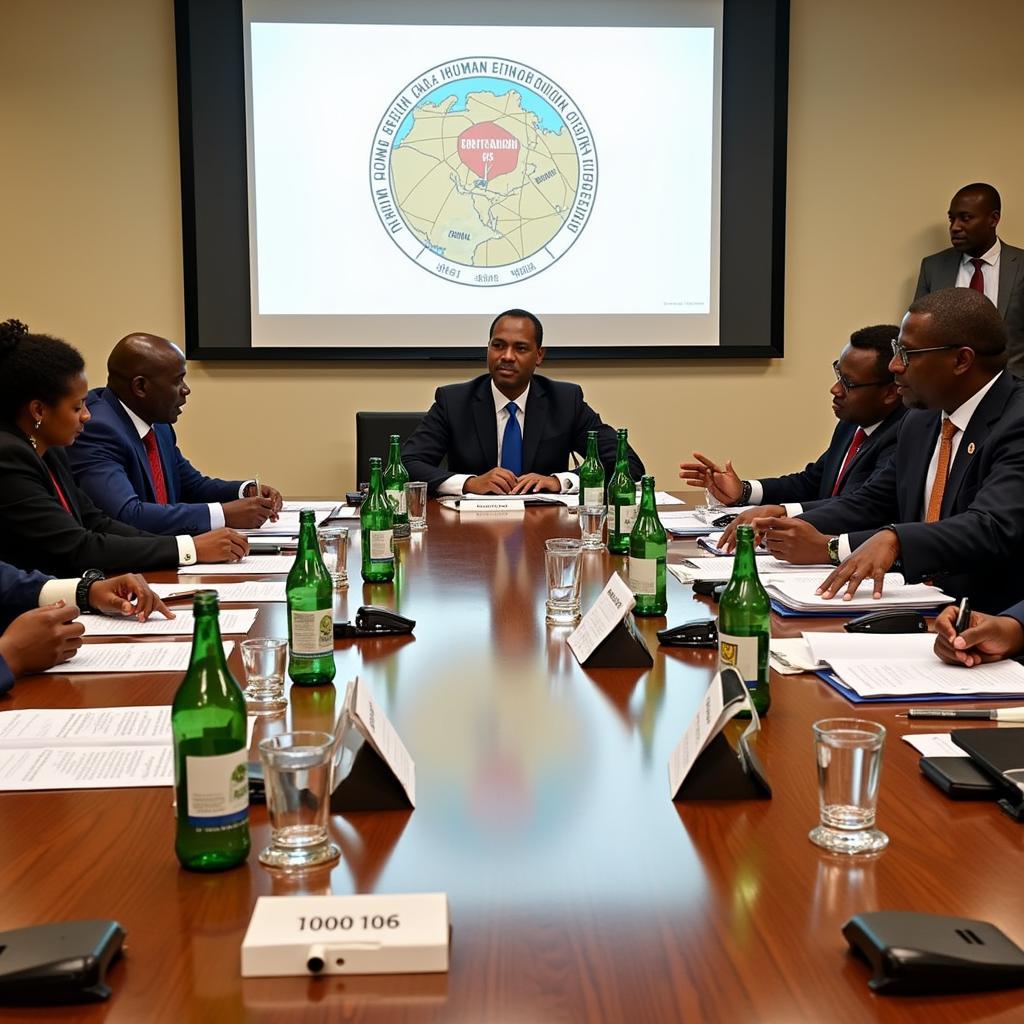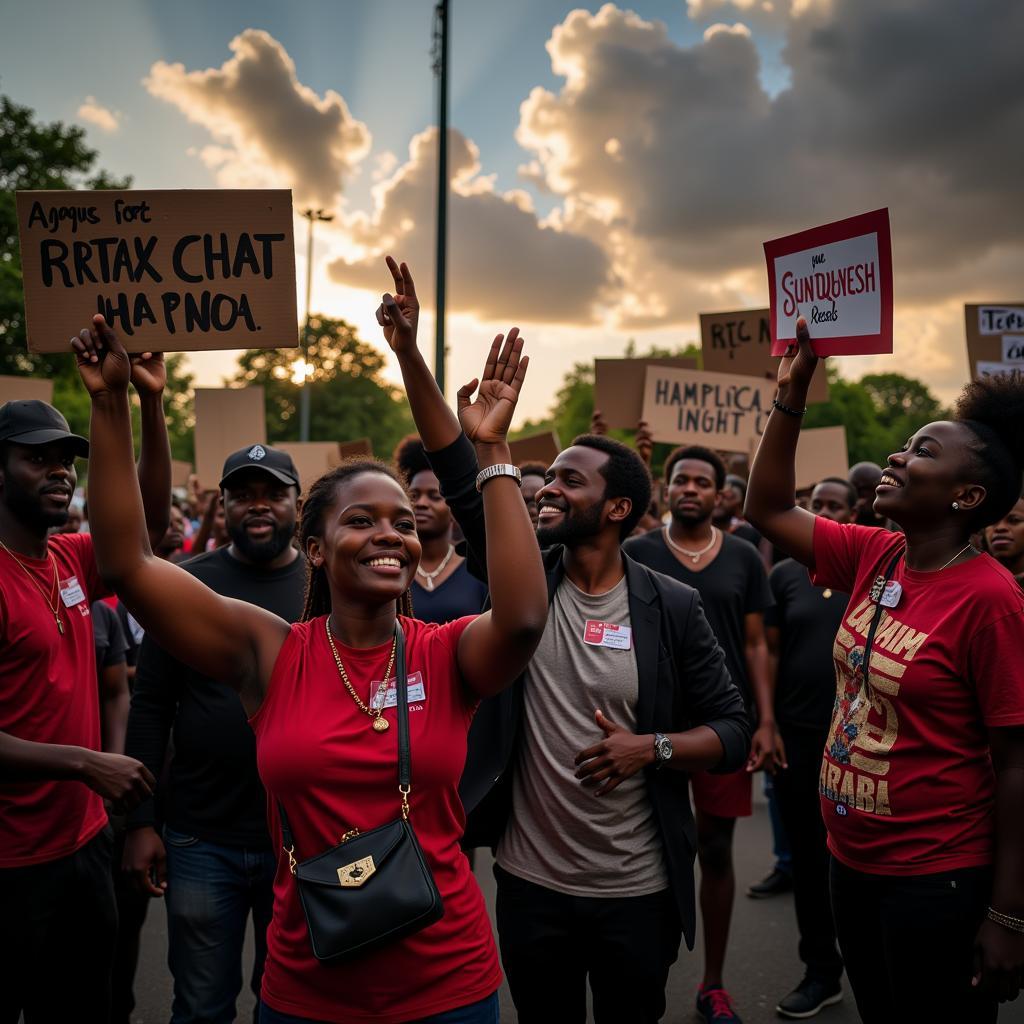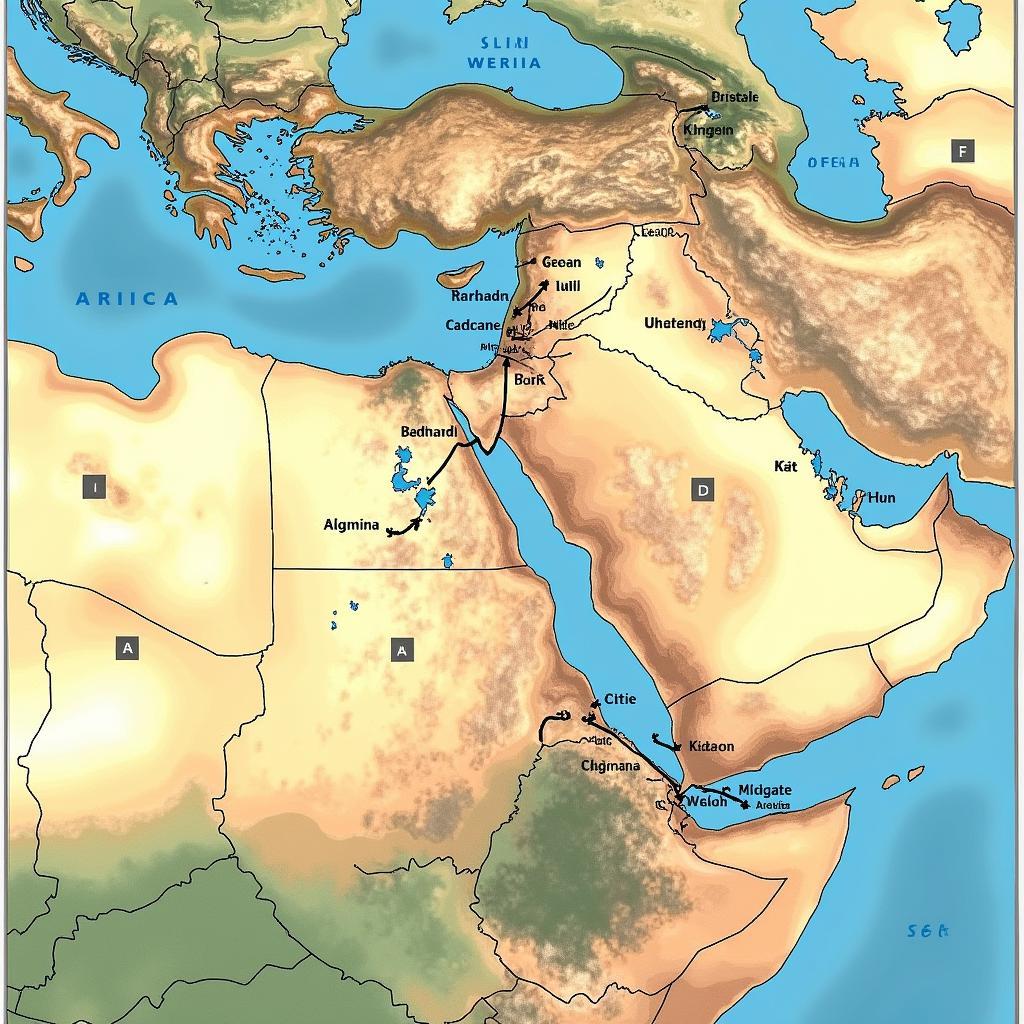The African Commission on Human and Peoples’ Rights: A Beacon of Hope
The African Commission on Human and Peoples’ Rights (ACHPR) stands as a testament to Africa’s commitment to upholding the dignity and rights of its people. Established in 1986, the Commission plays a pivotal role in promoting and protecting human rights across the African continent.
 African Commission on Human and Peoples' Rights Meeting
African Commission on Human and Peoples' Rights Meeting
A Watchdog for Human Rights in Africa
The ACHPR operates under the auspices of the African Union (AU) and derives its mandate from the African Charter on Human and Peoples’ Rights. This Charter, adopted in 1981, sets out a comprehensive framework of fundamental rights and freedoms that all African states are obligated to respect, protect, and fulfill.
Key Functions of the ACHPR
The Commission’s work is multifaceted and encompasses three primary functions:
- Protection: Receiving and investigating individual complaints of human rights violations by State Parties to the Charter. This involves reviewing allegations, mediating between parties, and issuing recommendations for redress.
- Promotion: Raising awareness and understanding of human rights across the continent. This includes conducting research, organizing workshops and seminars, and collaborating with civil society organizations.
- Interpretation: Providing authoritative interpretations of the provisions of the African Charter. This helps to clarify the scope and application of human rights standards in the African context.
 African Human Rights Activists Protesting
African Human Rights Activists Protesting
Structure and Composition
The ACHPR comprises eleven independent experts, each elected by the AU Assembly for a six-year term, renewable once. These individuals are chosen based on their high moral character, integrity, and recognized competence in the field of human rights. They serve in their personal capacities, not as representatives of their respective countries.
Achievements and Challenges
Over the years, the ACHPR has made significant contributions to the advancement of human rights in Africa. It has issued numerous landmark decisions, holding states accountable for their human rights obligations. The Commission has also played a critical role in promoting awareness of human rights among African populations.
However, the ACHPR faces significant challenges. These include limited financial resources, lack of enforcement power, and interference from some State Parties unwilling to accept scrutiny of their human rights records.
The Future of Human Rights in Africa
The ACHPR remains a vital institution for the protection and promotion of human rights in Africa. Its continued effectiveness will depend on increased support from the AU, greater cooperation from State Parties, and the unwavering commitment of civil society organizations and human rights defenders across the continent.
FAQs about the African Commission on Human and Peoples’ Rights
1. Who can file a complaint with the ACHPR?
Any individual or group claiming to be a victim of a human rights violation can file a complaint against a State Party to the African Charter.
2. What types of human rights violations does the ACHPR address?
The ACHPR addresses a wide range of human rights violations, including those related to civil and political rights, economic, social and cultural rights, and the rights of specific groups such as women, children, and refugees.
3. Is the ACHPR’s work legally binding?
While the ACHPR’s decisions are not directly legally binding, they carry significant moral and political weight. States are expected to comply with the Commission’s recommendations.
4. How can I get involved in supporting the work of the ACHPR?
There are many ways to support the ACHPR, including raising awareness about its work, advocating for increased resources for the Commission, and supporting African human rights organizations.
Need help or more information?
Contact us at:
Phone Number: +255768904061
Email: kaka.mag@gmail.com
Or visit us at: Mbarali DC Mawindi, Kangaga, Tanzania.
We have a 24/7 customer service team ready to assist you.

